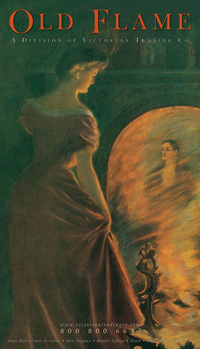For intimate apparel merchant Bare Necessities, spin-off titles have been a successful venture. Bare Necessities launched BarePlus by Bare Necessities at BarePlus.com in February with a big public relations blitz.
BarePlus offers more than 81 designer brands and more than 1,000 styles of national and international intimates exclusively for the woman with curves. Jay Dunn, Bare Necessities’ chief marketing officer, said business has been strong while the spin–off title will continue to roll out over the next two years. “Adoption by the plus-size community has been phenomenal.”
Because of his background at plus-size women’s apparel merchant Lane Bryant, Dunn said the plus-size market was a “natural for Bare Necessities to conquer.”
For merchants considering a spin-off, Dunn has some advice.

“Define yourself before you define the opportunity,” Dunn said. “If you cannot fulfill the promises you make and offer something new or differentiated to the consumer, you will likely fail. Bare Necessities could not have done plus fashion as well as we do if we did not already know how to do it. We accentuated a core strength we already had.”
Randy Rolston, president and co-founder of Victorian Paper Co., said his company’s main catalog – The Victorian Trading Co., which sells gifts and home accessories – is a spin-off from the original catalog titled The Victorian Papers, which sold greeting cards and stationery.
The company’s current catalog spin-off titles are Castle & Cottage (home), Hopeless Romantic (apparel), Old Flame (candles) and a jewelry catalog known now, Rolston said, as Hopeless Romantic Jewelry Collection.
Rolston said the decision to create a spin-off catalog is prompted when the sales of a product category exceed what the standard catalog will accommodate. “The determination to develop a themed catalog must be weighed carefully against trends and media influences that cause special interest sales to fluctuate for a short time. We have had great success with testing spin-off catalogs first in our package insertion program, affording us an opportunity to feasibly test the market before expanding it into a full catalog.”
Rolston offered these tips for companies considering spin-offs.
Test it on a small scale.
Know your limitations. “Halloween costumes are our strongest product category, but a costume catalog would be difficult to market with a short window of sales.”
Build a mail list using a cooperative database to model your own customers who have purchased products from the spin-off catalogs categories. “We try to give our spin-off catalogs the same look of the parent catalog but with its own theme.”
In the late 1990s, ID accessories were one of the best performing product categories in the Baudville catalog. But Baudville was growing and adding more employee recognition products, so IDs began to receive less attention from a marketing standpoint, David Pezzato, Baudville’s senior vice president and chief financial officer, said.

At the same time, PVC card printers made it easy to print IDs on your desktop. “The new technology and our popular badge printing software seemed like the perfect combination,” Pezzato said. “Thanks to the success of the ID accessories product category, we decided that ID accessories needed their own space.”
The result? The launch of IDville.
IDville’s first 32-page catalog of ID accessories and ID card printers was printed in August 2002 and became Baudville’s first spin-off, which included a separate business plan, budget, and dedicated resources.
Pezzato said spin-offs offer new opportunities to diversify your business. “It also has a powerful impact on your culture. There’s nothing like the excitement of something new. Dedicate separate leadership at the top for your spin off and share as many resources as you can. Most importantly, have passion for the product and what you’re doing.”
To be sure, spin-offs or start-ups are not for everyone. Gardens Alive! CEO Niles Kinerk falls into this category. “We haven’t spun off or started up a new brand or title because I believe it is less expensive to build a new brand when you buy titles. With the cost of mailing today, unless you are going to be Internet only, starting up a new title is too expensive.”
Jim Tierney ([email protected]) is a senior writer for Multichannel Merchant. You can connect with him on Twitter (TierneyMCM) and LinkedIn, or call him at 203-358-4265.